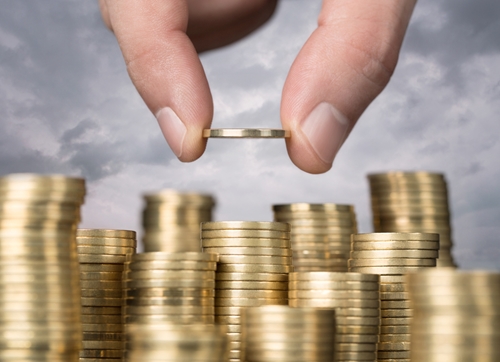Are You Financially Prepared For The Unexpected
Depending on the situation, being financially prepared can mean different things to different people. For some, worry about natural disasters can lead to struggles with the decision of whether to pay for additional home insurance. For others, retirement is a concern. Maybe it’s making plans to be financially ready for a baby that’s on the way or the worry of living paycheck to paycheck until the next financial emergency hits. Whatever the reason, there are steps that can be taken to ensure that no matter your focus, you are financially prepared for whatever life throws your way.
Being Financially Prepared
Saving money and building your reserve fund is not an easy thing to just put together. For most people, having a ready financial resource will take years and a great deal of discipline to accumulate. However, when the alternative is being financially under-prepared when “stuff happens”, your hard work will certainly be worth it.
Here are a few tips for planning ahead and making sure your finances are ready for any bump in the road:
Eliminate Debt
Saving money is always easier when there’s little debt to continually chip away at. Paying off debt should be the first step you take to create financial stability. Keep in mind, however, that paying down debt doesn’t mean you can’t save some money while doings so- it just means until your debt is manageable, debt payments should be larger than what’s going into the savings account. Of course, once your debt is paid off, you can then use the extra money your were paying to your outstanding balances toward building up your emergency fund.
Verify Insurance Policies
While you might assume that damages from floods and hurricanes are covered under homeowner’s insurance, this isn’t often the case. In fact, according to U.S. News & World Report, a survey of 1,200 adults revealed that about half of homeowners didn’t know the precise coverage1 of their home insurance policy.
While they’re not something that’s fun to think about, natural disaster such as floods, earthquakes and hurricanes come unexpectedly and often require their own policy or additional costs. If living in an area that comes with high risk of natural disasters, it is in your best interest to verify your policy covers the events you want–even if this means spending a bit on monthly payments. You can always reevaluate your finances to make this work and you should always be prepared for events beyond your control.
Spend Wisely
While any advice to “spend wisely” might sound cliché, creating limits on your spending might feel a little uncomfortable at first but as the saying goes “Don’t give up what you want most for what you want now.” Establishing a monthly limit of funds set aside for ‘free spending’ while using the rest for bills and building up your savings account is a short term loss for long term gains. But don’t take our word for it- according to APN, you should pay for items that are necessary, such as home repairs or medical expenses and put the rest into a savings fund.
There are always ways to secure funding in times of necessity—whether this means taking out an installment loan or turning to some other credit line—there are options available to assist you when you need it. When it boils down to it, however, it’s up to you to take financial preparation into your own hands.
Sources:
1Palmer, Kimberly. (2013, Sept 10). Retrieved from: https://money.usnews.com/money/personal-finance/articles/2013/09/10/are-you-financially-prepared-for-a-hurricane

 You must have JavaScript enabled to use this site.
You must have JavaScript enabled to use this site.
 For a better user experience consider upgrading your browser.
For a better user experience consider upgrading your browser.

